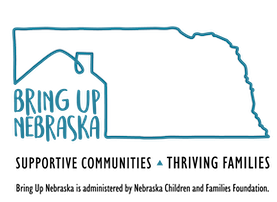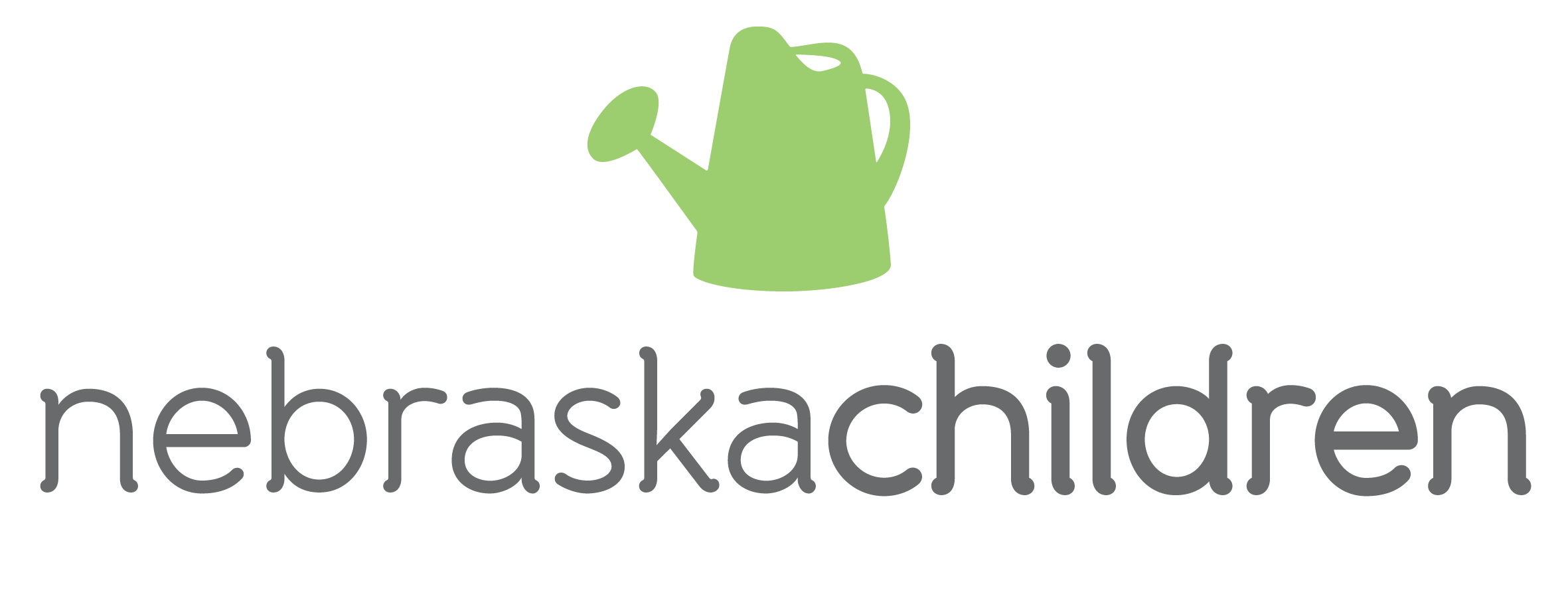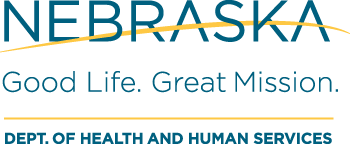At first, the idea of businesses playing a role in raising healthy, stable children seems counterintuitive. But when you consider that many working adults spend the majority of their waking hours at their place of employment, it becomes clear that employers have a powerful impact on the quality of life of their employees. And employees with healthy, stable homes have fewer sick days and are more productive at work. As a business owner or manager, you have a lot of say in whether your practices positively influence the family lives of your employees.
You can build a culture, policies and practices that promote the five Protective Factors with your employees’ families.
Knowledge of Parenting and Child Development
Parents that know about the ages and stages of infancy, childhood, and youth make better parenting decisions. Businesses can help provide some of this knowledge to their employees.
Books as gifts
If you give gifts to your employees on birthdays, holidays or when a new child is born, consider giving a book about child development. Mind in The Making and The Happiest Baby on the Block are two good choices.
Home visiting referrals
Many new parents find the services of a home visitor invaluable. A trained child development professional will visit the home, check on the child’s development and share activities parents can do to help the child meet developmental milestones. Provide new parents with the contact information for home visiting in your area, such as:
- The Early Development Network
- Staying On Track (mobile app)
- Sixpence Early Learning Programs
- Early Head Start
- Maternal, Infant and Early Childhood Home Visiting
Parents that are securely bonded to their children are far more likely to have the positive interactions that promote thriving children. Business owners and managers can promote nurturing and attachment through:
Maternity leave
While companies with 50 or more employees are required to offer 12 weeks of unpaid leave to mothers after the birth of a child, smaller businesses may find this difficult. Work with your expecting employees to make sure they get enough time to bond with their babies, either with 8-12 weeks of maternity leave or with a shorter amount of leave followed by a part-time return period. For employees reluctant to take unpaid leave, consider offering inexpensive short-term disability insurance that will pay a percentage of the employee’s salary while she’s on leave.
Bonding leave
Dads need time to bond with their new children, too. Many businesses give new fathers a paid week off to get to know their new baby in addition to any vacation or sick time. This is a great way for fathers to get acquainted with the newest member of their families.
Encourage vacation and sick leave
Policies that allow employees to roll over a week of their unused vacation/sick time encourage use of these days to care for ill family members or to spend together for their benefit.
Family events
Having an annual holiday party or family picnic can be a great way for employees to connect their home life with their work life. Providing family-friendly activities that your employees can do with their children, will help them build a deeper connection, while letting your employees know that they’re important to you.
Social and Emotional Competence of Children
One effective way for businesses to support the development of their employees’ children is to promote access to high-quality child care.
Dependent Care Flex Plan
Allow your employees to pay for child care tax free by instituting a flex plan. A certain portion of their wages is withheld and not taxed, and they can be reimbursed from the withheld money for what they spend on child care.
Consider a partnership
If there is a high-quality child care facility near your location, consider approaching them about reduced rates for your employees. The benefit to you is that having your employees’ children at a nearby child care center will also make it easier for them to stay with you.
Parental Resilience
One key component to a successful family and employee is skills to manage challenges and crises. As a business owner or manager, you know that the job can be a primary source of stress. One thing you can do is provide employees resources to deal effectively with stress.
Encourage regular breaks and renewals
Periodically recharging while on the job leads to greater productivity and innovation, plus allows employees to effectively deal with stress.
Reward healthy living
Regular exercise is a proven way to manage stress and promote resilience. Provide your employees an incentive to join and use a local gym. For example, any employee who logs 21 days of workouts in a month earns a day off. You can also work with local health clubs to negotiate a lower rate for your employees.
Personal development
Many companies will periodically bring in trainers to speak to employees about health and stress management.
Social Connections
This Protective Factor is a win-win. Employees are far more likely to stay with an employer if they feel like they have friends on the job. For your employees, parents who have solid friendships are much more likely to have positive, healthy interactions with their children. Is your workplace a place where friendships grow?
Informal mentoring programs
These effective and free programs help new employees become acclimated with your business, while providing them with an instant connection. Mentors can help guide employees without involving management, and make employees feel like they belong.
Social events
The occasional social event on a Friday afternoon can do wonders for relationship building. It brings people closer together and helps employees create those workplace friendships that mean so much for their on-the-job performance and their ability to manage stress at home.
Concrete Supports
Every family needs concrete supports like health services and many families need concrete supports like child care. While it might not be the role of your business to provide these services, supervisors and human resources managers are in a good position to provide referrals and indirect access to concrete supports.
Have an Employee Assistance Program (EAP)
An Employee Assistance Program is an inexpensive benefit businesses can offer their employees, allowing them to get free counseling for personal matters, family or work issues, substance abuse help and other supports for free.
Opt for insurance that covers mental health visits
If you offer health insurance to your employees, be sure to offer a policy that covers counseling and mental health prescriptions.
Keep a list
Doctors, dentists, child care facilities, grief counseling groups, food pantries – sometimes when an employee has an emergency need, coworkers and supervisors are the first to notice. Being able to provide the contact information for services is a helpful, caring move that will benefit the employee, their family and you.
Click here to download this page's content as a pdf.
Why Strengthening Families is important to your business
Family issues impact businesses every day, from how focused and productive employees are to - in some cases - whether they are able to come to work on time or at all. They can also affect consumer activity and overall business reputation. By taking a vested interest in strengthening families, the private sector can do more than just support local efforts. Using some, or all, of five evidence-based protective factors (side bar) to promote healthy families and reduce abuse and neglect, businesses can:
- Increase their corporate responsibility
- Reduce potential human resource issues and costs
- Improve internal culture
- Increase worker productivity
- Attract and retain quality employees
- Maintain a positive community image
These are just some of the ways companies can make a real difference, most in no-cost or low-cost ways.
The unique role of the business sector
Business professionals have several important roles to play with employees, customers and the broader community. With employees, the protective factors can provide a framework for a holistic human resources approach that can help with developing and retaining a workforce. Over time, these investments can help build a strong, competent workforce and a successful business. Both of which contribute to the economic foundation of this country.
Many businesses touch thousands of families on a daily basis. They have access to those who come through the door and who they reach through advertising. They also play a role as community leaders. With visibility and often a large infrastructure for disseminating information, through training and skill building and by influencing customer behavior, companies are well poised to be a powerful vehicle to help provide information that supports and strengthens families (and at the same time, their business).
More importantly, when businesses integrate these messages into their environments, families see and understand that these issues and solutions are things that everyone is thinking about. When business leaders demonstrate that they care about whether families are getting the support they need it sends an important message.
Action Steps:
- Create environments in your workplace or business to promote social connections and parent/child interaction.
- Provide resources and opportunities for families to meet and engage (picnics, take child to work day).
- Create safe environments for consumers (play area, kid-friendly equipment).
- Help share information about the Strengthening Families approach.
- Have informative material available in the workplace.
- Connect families to resources and support.
- Build relationships with local programs that can support families (sponsor local youth programs or activities).
- Have information about these programs available for families or encourage these providers to come into your business to talk about the services they provide (YMCAs, sports programs, nonprofits).
- Bring services that can support and strengthen families into the work environment for either consumers or employees (for example, a local family resource center might be able to lead a parent child activity at your place of business).
- Serve as a champion for strengthening families and preventing child abuse and neglect.
- Find out if there are ways to partner with the Strengthening Families efforts in your state.
- Serve as a spokesperson for why this is important with other businesses, policymakers and law enforcement.
About Strengthening Families
Strengthening Families was developed by the Center for the Study of Social Policy to help people and organizations take action to support families and reduce child abuse and neglect. The approach focuses on five protective factors associated in research literature with lower rates of child abuse and neglect:
- Parental Resilience: The ability of parents to form nurturing relationships and respond to stressful situations in productive ways.
- Knowledge of parenting and child development: a parent’s understanding of how children develop and the role families play in fostering development.
- Social Connections: The many positive relationships families need for emotional and concrete support.
- Concrete Supports in Times of Need: A family’s ability to access help and resources when they need them.
- Social Emotional Competence of Children: Children’s ability to express and control their emotions in a developmentally appropriate way
More than 30 states have active Strengthening Families initiatives that include funding, support and training to help build protective factors in families with young children. Your state may have tools, training and other resources you can access. To find out if your state is participating and find materials and tools from the national Strengthening Families work go to: www.strengtheningfamilies.net





